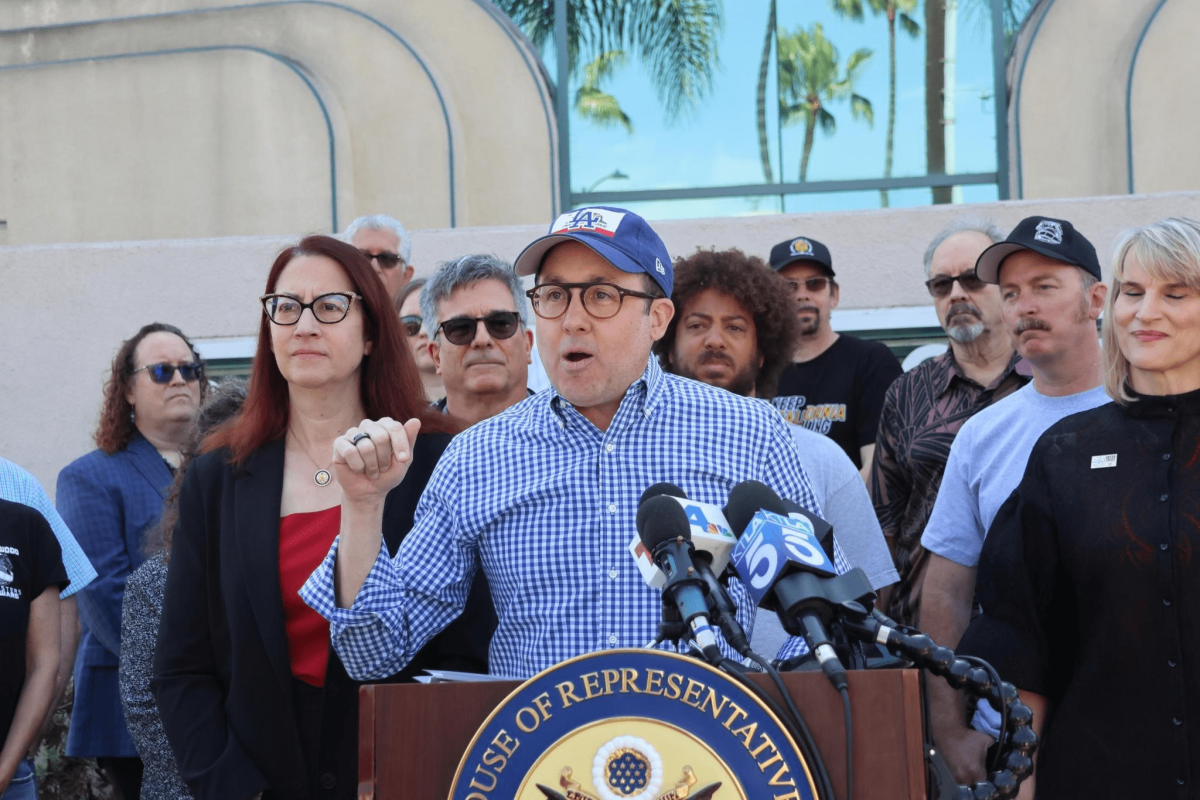Beverly Press Park Labrea News: Newsom counters Trump with film tax credit plan

Following a post on May 4 in which President Donald Trump suggested that a 100% tariff be applied to films produced “in foreign lands,” California Gov. Gavin Newsom countered with a federal film tax credit program proposal, which would be modeled after the same program the state is currently looking to expand.
“America continues to be a film powerhouse, and California is all in to bring more production here,” Newsom said. “Building on our successful state program, we’re eager to partner with the Trump administration to further strengthen domestic production and Make America Film Again.”
According to Newsom’s office, the program – which currently offers $330 million in annual credits – has been “a home run success,” and that for every tax credit dollar approved, $1.07 in tax revenue is earned. The governor’s office also said that $24.10 in output, $16.14 in gross domestic product and $8.60 in wages results from each tax credit dollar.
Currently, the California Legislature is considering the Film & TV Jobs Act, which would increase the tax credit amount to $750 million. Other states, like Georgia and Louisiana, also have lucrative tax incentives, which has negatively impacted production in Los Angeles. Last week, the L.A. City Council unanimously approved a motion that would look to reduce permitting costs for productions. The council will also vote May 9 on supporting the Film & TV Jobs Act.
Since the January wildfires, the grassroots organization Stay in LA has advocated for studios to return production to California to help bolster the local economy, hire unemployed workers and to cement the area’s foothold on the film and television industry.
“We’re finally on the radar – as one team, one country,” Stay in LA co-founder Pamala Buzick Kim said. “Now let’s make sure we’ve got our commercial and post family covered and roll out our red carpet.”
“A federal film incentive is long overdue. It is smart industrial policy,” said Adam Fowler, a representative of the consulting firm CVL Economics. “Film and television are rare U.S. industries that combine high-skilled jobs, global exports, and cultural influence. While other countries treat screen production as a strategic export and support it with national policy, the United States has left the responsibility to states with limited tools and balanced-budget constraints. A federal incentive puts us back in the global game and on a level playing field.”
Upon taking office in January, Trump named actors Jon Voight, Mel Gibson and Sylvester Stallone as leaders in helping return film and television production to the United States. The tariff idea reportedly resulted from a meeting between Trump and Voight.
Rep. Laura Friedman (D-Glendale) has been an advocate for a federal film and television tax credit, and she said she is ready to discuss the issue with the president and Voight.
“I’m happy to work with him and anyone else, including the administration, on real solutions that are tested,” she said. “And that makes sense, because we know that a national film tax credit will level the field with other countries that are luring productions away from Los Angeles and the United States.”
Friedman also said that she would explain to her Congressional colleagues that the industry is “money well spent.”
“I would point out that we have 2.3 million jobs in this industry nationwide, and that the industry accounts for almost $230 billion in total wages – and that’s direct wages. There are more than 122,000 businesses across the U.S. that have a connection with the film and television industry,” she said. “For the past 100 years – more than 100 years … we have captured the hearts and minds of so many people around the world, being able to show them what it’s like to be an American – what our values are, what our country is about, and you can’t put a dollar figure on that.”
California Assemblyman Rick Chavez Zbur (D-Hollywood) and Sen. Ben Allen (D-Santa Monica), both authors of the Film & TV Jobs Act, applauded Newsom’s proposal.
“A federal incentive program would certainly go a long way in retaining domestic production and keep our creative workforce here in the United States,” Allen said. “Many other countries are doing this, so it would be beneficial for us to compete with these programs. Importantly, tax incentives would help avoid any potential reciprocal tariffs placed on our production exports that could affect our standing in the global marketplace.”
Zbur said, though, the state should remained focused on its own legislation.
“In the meantime, however, California’s film and TV industry faces Depression-era levels of unemployment and business loss,” Zbur said. “That’s why we must keep our eye on the ball and pass the California Film & TV Jobs Act – to modernize and strengthen the program and ensure California remains competitive with other states and countries.”